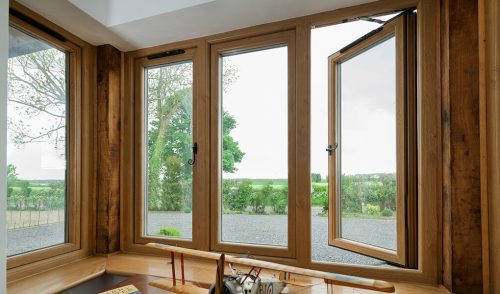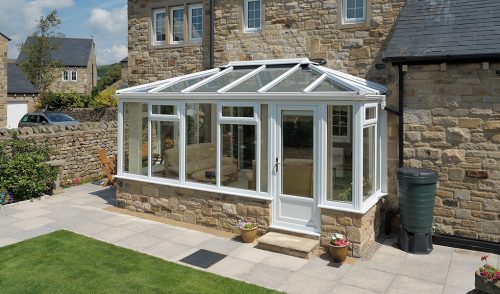The upcoming rise in energy bills is causing us all to reevaluate the way we live. Combining this with the ongoing climate crisis, Buckinghamshire homeowners are becoming increasingly concerned about the efficiency of their windows and doors. Here at Premier Windows, we’re proud to offer windows and doors in a full range of materials. But which material is the most energy-efficient?
| Material
|
Thermal efficiency
|
Recyclability
|
| uPVC | Heat-trapping chambers and low conductivity help them to achieve U-values for 1.1W/m²k.
|
100% recyclable. |
| Aluminium | Polyamide thermal breaking technology allows them to achieve U-values as low as 1.2W/m²k.
|
100% recyclable. |
| Timber | A naturally excellent insulator with U-values as low as 0.9W/m²k.
|
100% recyclable and endlessly renewable source. |
| Composite (doors only) | Thermally insulating core secures energy ratings of A.
|
Glass Reinforced Plastic (GRP) skin and timber core can be fully recycled. |
Are uPVC windows and doors energy efficient?
uPVC (Unplasticised Polyvinyl Chloride) is a plastic with a very low thermal conductivity. This means that heat struggles to pass through the material. This prevents heat from escaping your home, reducing the need for excessive central heating usage.
uPVC window frames have multiple heat-trapping chambers. This helps them to achieve U-values of 1.1W/m²k, equating to energy ratings of A+. This makes them easy to fabricate with both double and triple glazing, which further assist your home’s heat retention.
As a plastic, all uPVC windows and doors are also 100% recyclable.
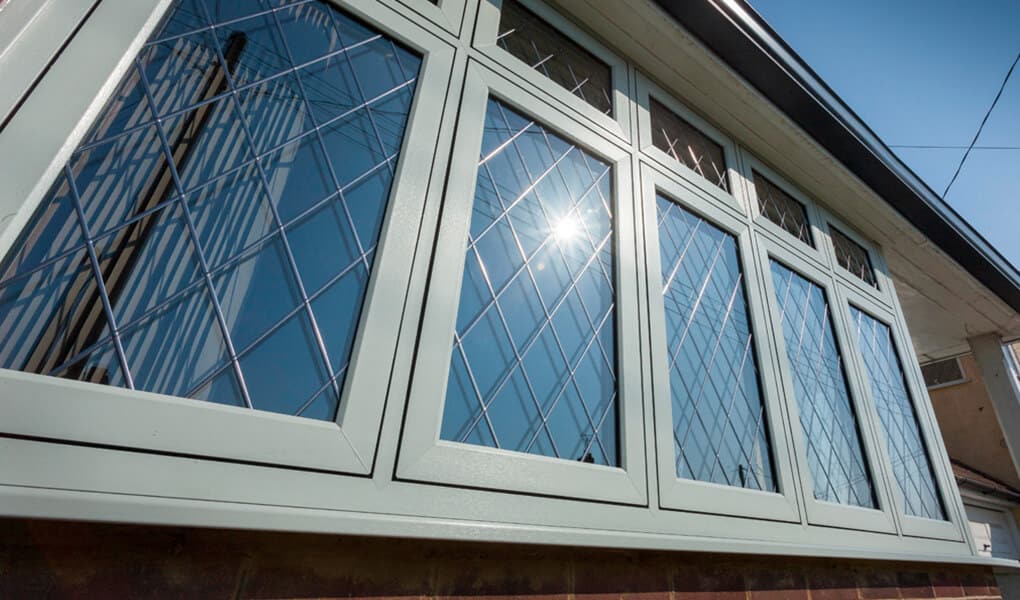
Are aluminium windows and doors energy efficient?
Being a metal, raw aluminium would be an excellent thermal conductor, and therefore not a very effective insulator. However, polyamide thermal breaking technology has helped to make aluminium one of the most thermally efficient window and door materials.
A thermal break occurs by inserting a sheet of polyamide plastic inside the aluminium frame. This creates a ‘break’ between the inner and outer frames, helping to dramatically slow the rate of thermal transfusion. With this technology, aluminium windows and aluminium doors can achieve U-values as low as 1.2W/m²k.
100% of aluminium can be recycled over and over again without losing quality. In fact, 75% of aluminium in use today has been in circulation for over 100 years. Undoubtedly, aluminium windows and doors will reduce your carbon footprint at every stage of their life cycle.
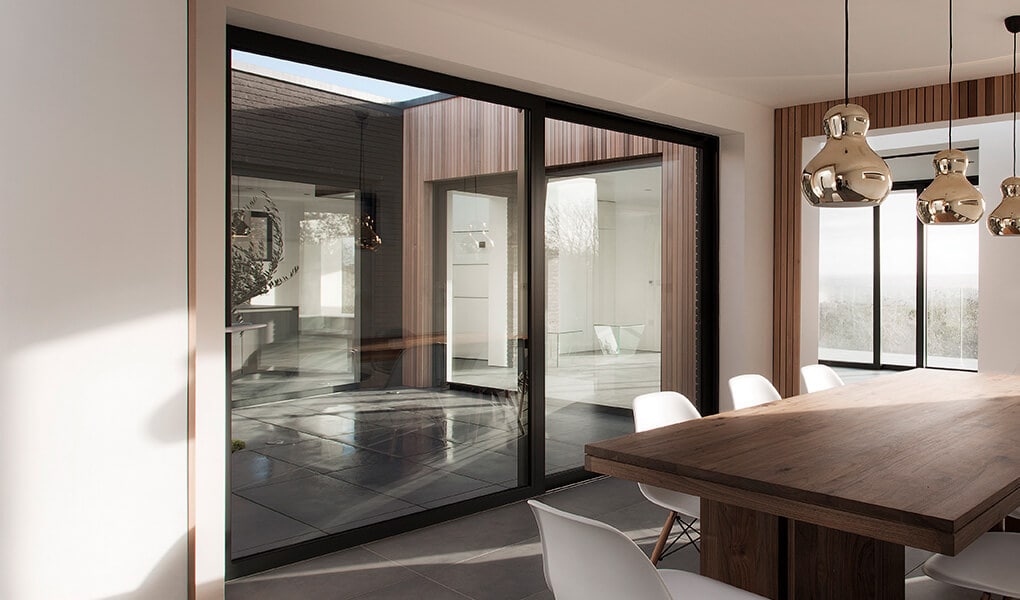
Are timber windows energy efficient?
Timber is a naturally excellent insulator. Wood has been used to manufacture window and door frames for hundreds of years. It’s possible for timber windows and timber doors to achieve unbelievably low U-values of 0.9W/m²k.
Of course, all timber is 100% recyclable. However, it’s also the most sustainable and renewable window or door material.
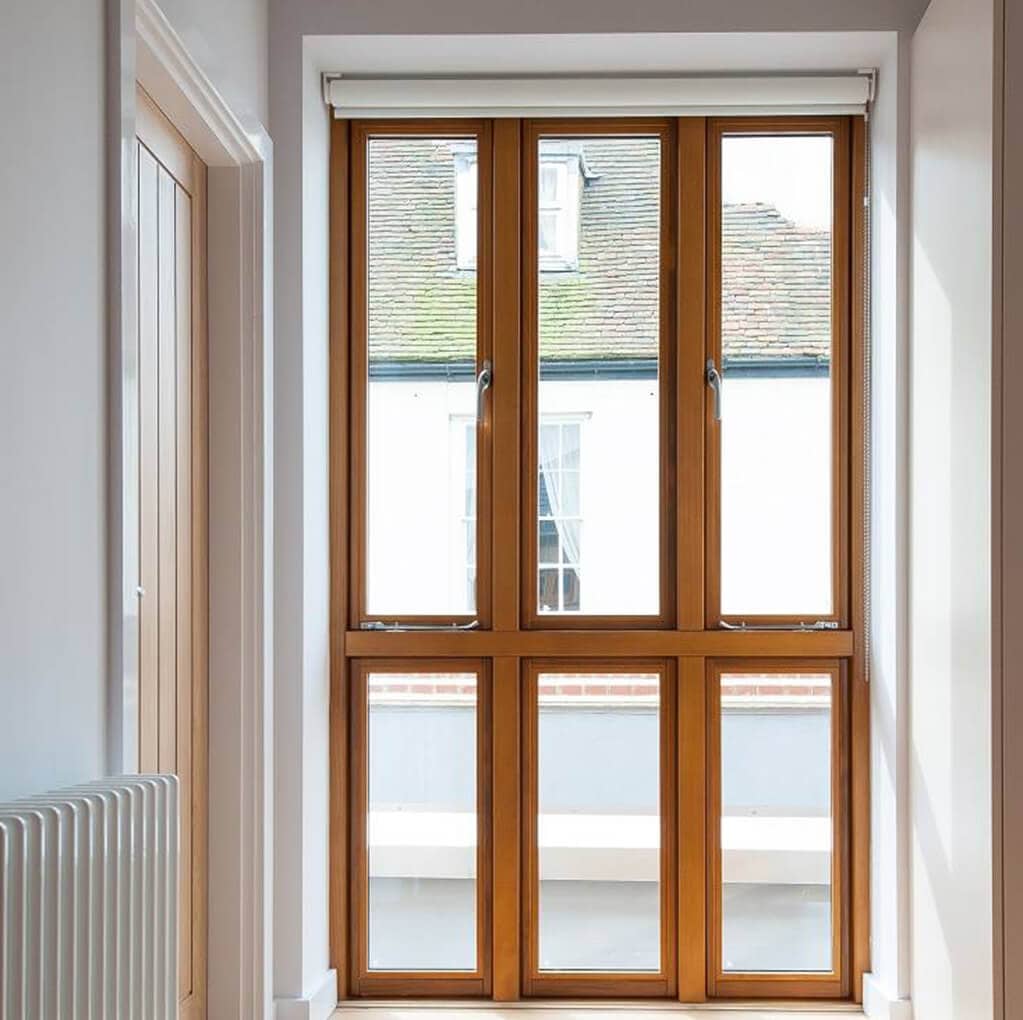
Are composite doors energy efficient?
Composite doors are manufactured with a thermally insulative core, made from either foam or solid timber. These cores help them to significantly slow the rate of thermal transfusion and achieve energy ratings of A.
Even though composite doors are manufactured from a range of materials, they are still fully recyclable. Both their Glass Reinforced Plastic (GRP) skin and timber cores can be repurposed.
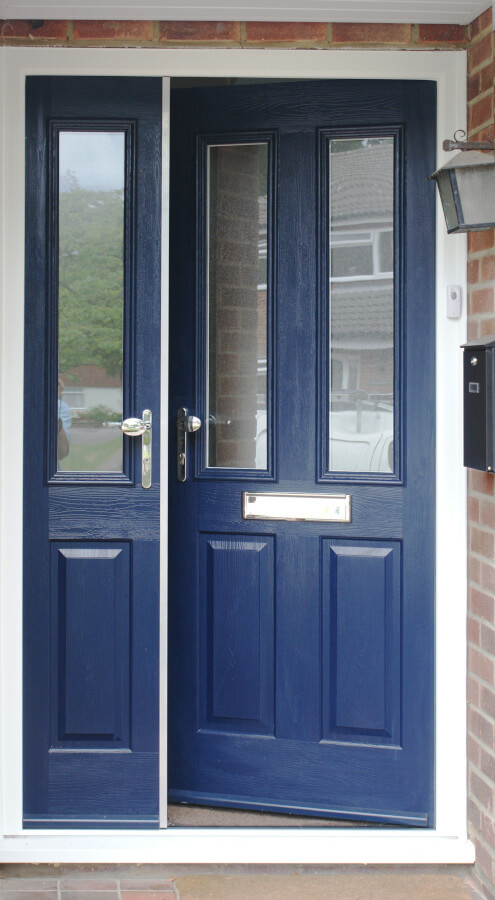
Energy efficient windows and doors across Buckinghamshire
Premier Windows offer eco-friendly windows and doors in Aylesbury, Chesham, Wendover and across Buckinghamshire. For more information, download our specialist window buying guide or download our specialist door buying guide.
If you’d like a free, no-obligation quote, call us free on 0800 854 353 or contact us online.
Get a free quote
If you're interested in any of products then get in touch with us to get your free quote today.
Book an appointment
If you would like to discuss our incredible range of products, then book an appointment today.

